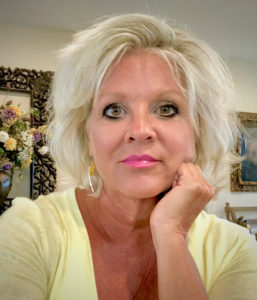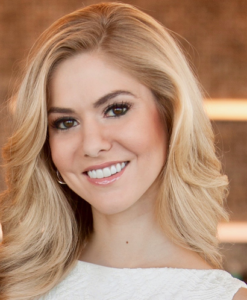
Kirsten Haglund of Addiction Hope and Eating Disorder Hope conducted an interview with Sandy Swenson about her experience with a son struggling with addiction, the significant changes she made during his treatment, the stigma of addiction, and the resulting book she wrote Tending Dandelions: Honest Meditations for Mothers with Addicted Children. Kirsten interviews guests that are experts in their field such as leading doctors, clinicians, experts, advocates, and people with their own recovery experiences, offering their insight and sharing their wisdom.
Kirsten:
One user asked, “with you being so public about your story and your son, how has it been for you and your family?”
Sandy:
Everyone has been tremendously supportive, my family, my friends. The few people that haven’t don’t matter because I know what’s right, so, I don’t waste my time on that, but most everyone is supportive.
Not surprisingly, a lot of other people are living the same as I was living. Once the conversation was out, it opened the door for a solution, and we can unite together and be stronger together.
When we are all hiding out in shame and guilt and sadness and fear and alone, the stigma of addiction is just devastation on top of devastation.
Once we begin talking about it, it shows it is a message of love. I don’t look at talking about my son’s addiction as anything more than talking about the sniffles. There is zero shame. I don’t feel one smidge of it.
Kirsten:
I think it is important, too, to acknowledge that you did a lot of work to get to that place. It didn’t happen overnight, and there was so much personal reflection involved.
A user shared, “I’m finding myself enabling my son who’s in prison now due to his addiction. I had been in a good place in my recovery before his sentencing. Now, I feel like I have to start all over.”
Sandy:
Well, it is such a roller coaster, and part of our journey is when we see other people and think, “oh, they’ve got it all figured out, she’s got it all together.”
Truly, we may be doing fine one day, and the next day, we feel we have to start all over again. But, every single time that we start over, we have that history now of all the success we have had and the things that we have learned behind us.

It takes less time, usually, to get back up, to get back into a better place.
We have to understand that, just like our children who struggle with addiction, it isn’t just a perfectly straight journey. We all go back-and-forth.
Kirsten:
That is very true.
What would you like to see changed even more in regard to how we talk about the stigma of addiction and mental illness?
Sandy:
I do think that the progress on the stigma has come so far.
However, I think that the population, in general, does not necessarily see it as a disease, and there’s a lot of work that needs to be done there.
This is where the power comes in, because, as moms, if we’re all hiding out in shame and treat addiction as though it’s something that we can’t talk about, how is the rest of the world going to believe it’s a disease?
We moms really do have the power because when all of us start talking about addiction, we have the power to change the way the whole world looks at addiction.
Kirsten:
I agree, and I still feel like there is, especially when it comes to substance abuse, this view that “good” families don’t have these problems or wealthy families don’t have these problems. That is just so false, as it can happen to anyone at any time no matter race, religion, ethnicity, socioeconomic, etc.
Sandy:
That is another reason why, with each of us speaking up, we see that it’s not just one subset. It can happen to anybody and everybody.
People will see more families that they know and see what they may really be going through. If they only see this on the news, it won’t help because they don’t think it happens to people they know.
Being open when a family experiences this shows that addiction can happen to anybody who has ever had a drink, taken a pill for pain, smoked a joint. Whatever it is, it could happen.

Once Pandora’s Box is open even the smallest crack, it can happen.
I read something from the current Surgeon General that he has heard enough about blaming the families and that he had a sibling who was an addict, and he isn’t.
He thinks his parents did a fine job and that it just has nothing to do with that.
Some people also say there are “accidental addicts” such as someone that took a pill prescribed for pain and ended up being addicted.
All addicts are accidental addicts. No one ever set out to become an addict.
This conversation will continue in Tending Dandelions: Honest Meditations for Mothers with Addicted Children – Part 7
Please See:
Tending Dandelions: Honest Meditations for Mothers with Addicted Children – Part 1
Tending Dandelions: Honest Meditations for Mothers with Addicted Children – Part 2
Tending Dandelions: Honest Meditations for Mothers with Addicted Children – Part 3
Tending Dandelions: Honest Meditations for Mothers with Addicted Children – Part 4
Tending Dandelions: Honest Meditations for Mothers with Addicted Children – Part 5
Source:
Weekly Hope Conversation with Sandy Swenson on March 12, 2019.
Please visit the Weekly Hope with Kirsten Haglund page for other presentations.
About the Author:
 Sandy Swenson is the mother of two sons—one of whom struggles with addiction. Author of The Joey Song: A Mother’s Story of Her Son’s Addiction {Central Recovery Press], Tending Dandelions: Honest Meditations for Mothers with Addicted Children [Hazelden Publishing], and Readings for Moms of Addicts App [Hazelden Publishing], Sandy lives in the place where love and addiction meet—a place where help enables and hope hurts. Sandy is a voice for parents of children suffering from the disease of addiction, putting their thoughts and feeling into words.
Sandy Swenson is the mother of two sons—one of whom struggles with addiction. Author of The Joey Song: A Mother’s Story of Her Son’s Addiction {Central Recovery Press], Tending Dandelions: Honest Meditations for Mothers with Addicted Children [Hazelden Publishing], and Readings for Moms of Addicts App [Hazelden Publishing], Sandy lives in the place where love and addiction meet—a place where help enables and hope hurts. Sandy is a voice for parents of children suffering from the disease of addiction, putting their thoughts and feeling into words.
Sandy lives in suburban Minneapolis, Minnesota. When she isn’t writing or traveling to speak with other parents coping with the disease of addiction in their family, Sandy enjoys gardening, reading, and spending time with family and friends.
About the Interviewer:
 Kirsten Haglund is an international speaker, mental health advocate, and digital media strategist. Through her media and communications company, En Pointe, she works with a diverse group of clients in both the profit and non-profit sectors increasing social engagement and scalability, social listening, communications training, spokesperson work increasing brand awareness.
Kirsten Haglund is an international speaker, mental health advocate, and digital media strategist. Through her media and communications company, En Pointe, she works with a diverse group of clients in both the profit and non-profit sectors increasing social engagement and scalability, social listening, communications training, spokesperson work increasing brand awareness.
Kirsten serves as a media spokesperson, speaker, and Director of Global Business Development and Digital Media for Eating Disorder Hope & Addiction Hope. She is also Community Relations Specialist for Timberline Knolls Residential Treatment Center and is Founder and President of the Kirsten Haglund Foundation.
She also does political analysis across television news networks and radio, including on MSNBC, CNN International, Fox Business Network, and Fox News Channel. Her Op-Eds on politics, culture and non-profit advocacy have appeared in the New York Daily News, Forbes.com, Huff Post and in industry journals.
She served as Miss America 2008 and Goodwill Ambassador for Children’s Miracle Network Hospitals. Kirsten graduated from Emory University with a B.A. in Political Science and is currently based in Zürich, Switzerland.
About the Transcript Editor:
 Margot Rittenhouse, MS, NCC, PLPC is a therapist who is passionate about providing mental health support to all in need and has worked with clients with substance abuse issues, eating disorders, domestic violence victims, and offenders, and severely mentally ill youth.
Margot Rittenhouse, MS, NCC, PLPC is a therapist who is passionate about providing mental health support to all in need and has worked with clients with substance abuse issues, eating disorders, domestic violence victims, and offenders, and severely mentally ill youth.
As a freelance writer for Eating Disorder and Addiction Hope and a mentor with MentorConnect, Margot is a passionate eating disorder advocate, committed to de-stigmatizing these illnesses while showing support for those struggling through mentoring, writing, and volunteering. Margot has a Master’s of Science in Clinical Mental Health Counseling from Johns Hopkins University.
The opinions and views of our guest contributors are shared to provide a broad perspective of addictions. These are not necessarily the views of Addiction Hope, but an effort to offer a discussion of various issues by different concerned individuals.
We at Addiction Hope understand that addictions result from multiple physical, emotional, environmental and genetic factors. If you or a loved one are suffering from an addiction, please know that there is hope for you, and seek immediate professional help.
Published on April 25, 2019
Reviewed & Approved by Jacquelyn Ekern, MS, LPC on April 25, 2019
Published on AddictionHope.com
